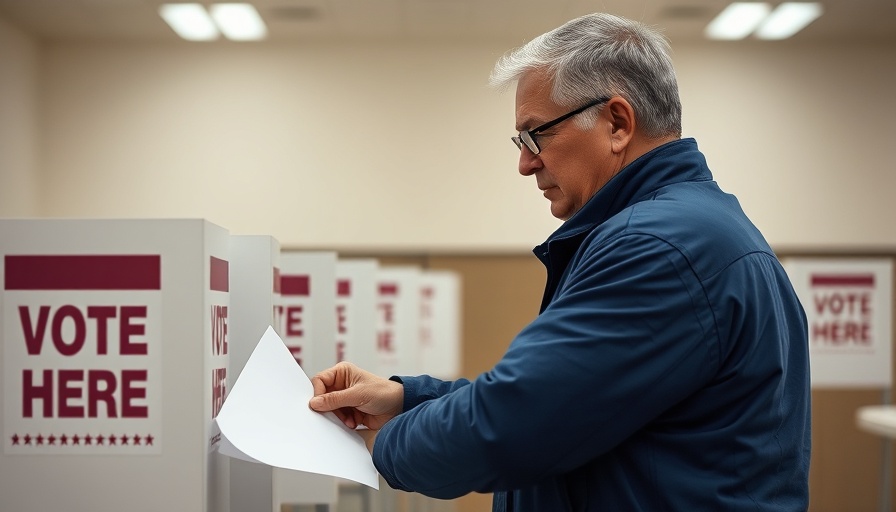
Understanding Huntington Beach's Voter ID Law
In Huntington Beach, a newly passed voter ID law has stirred significant debate, setting the stage for ongoing legal battles. The law, known as Measure A, allows the city to require voters to present identification when voting in person, while mail-in voters remain exempt. This local initiative was approved by voters in March 2024, but it now faces scrutiny from California's Attorney General, Rob Bonta, who argues that the law may not align with state constitutional standards.
The Stakes: What’s at Risk?
As the 2026 elections approach, Bonta is pushing for the appeals court to act swiftly to clarify the law’s standing. His appeal follows a ruling from an Orange County Superior Court judge, who deemed that the state's challenge was premature. The implications are far-reaching—should the law remain intact, it could introduce stricter voting requirements within the city, a move that critics argue may disenfranchise voters. The state leads this charge, underscoring that California’s elections are conducted securely, eliminating the need for additional ID requirements.
Huntington Beach's Stand
The city’s attorney, Michael Gates, has signaled a strong defense of the voter ID regulations, emphasizing that Huntington Beach will continue to uphold and enforce the law despite state opposition. Gates believes that local control of election laws is crucial, a sentiment echoed by supporters who argue that greater voter identification may enhance electoral integrity.
The Broader Context of Voter ID Laws
This legal clash in Huntington Beach is part of a larger nationwide conversation about voter ID laws. Critics assert that such measures disproportionately affect marginalized groups, whereas proponents contend that they are necessary to prevent fraud. As various states enact their own voter ID laws—each with differing guidelines and expectations—it's essential for communities to remain informed about how these regulations might impact their voting rights.
Local Voices: What Residents Are Saying
Local residents express varied opinions about the voter ID law. Supporters voice their concerns about election security, insisting that presenting an ID is a common-sense practice. Others worry about the potential barriers that could impede eligible voters from casting their ballots. These discussions highlight the need for civic engagement and awareness, nurturing a community that actively participates in the electoral process.
Looking Forward: Potential Outcomes
The appeals court's handling of the AG's petition will be crucial in determining the immediate future of Huntington Beach’s voter ID law. Should the law be upheld, the city will have to navigate the complexities of implementing these regulations in a timely manner before the upcoming elections. If overturned, it may signal a broader rejection of similar laws across California, influencing how local governments approach election-related legislation.
A Community at a Crossroads
As Huntington Beach finds itself at a political crossroads with its voter ID law, the outcome of this legal battle not only affects the city’s electoral landscape but may also set a precedent for other municipalities across California. Engaging local voices and fostering open dialogues about voting rights can help communities navigate through these pivotal times, empowering citizens to understand their rights and actively participate in the democratic process.
 Add Row
Add Row  Add
Add 




Write A Comment